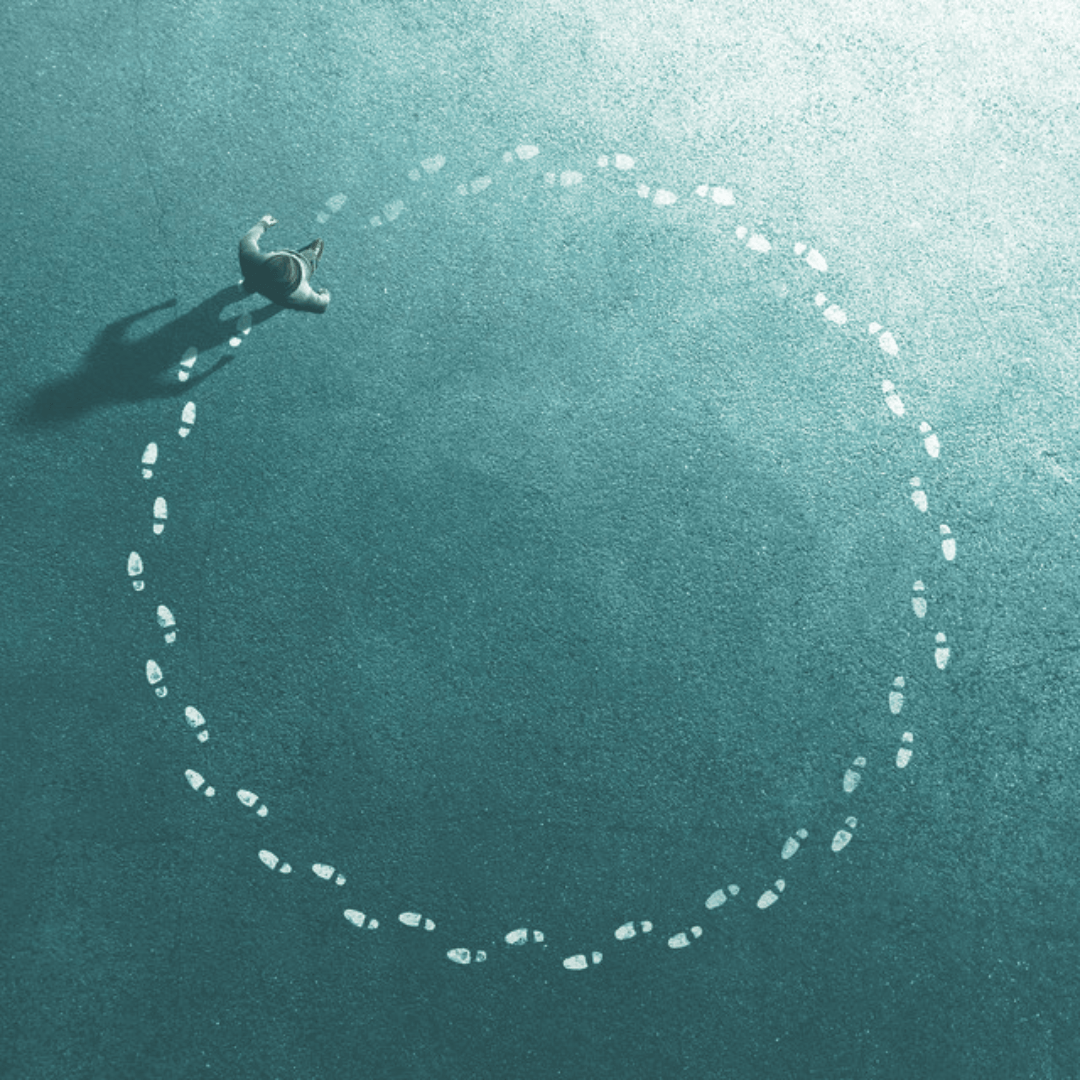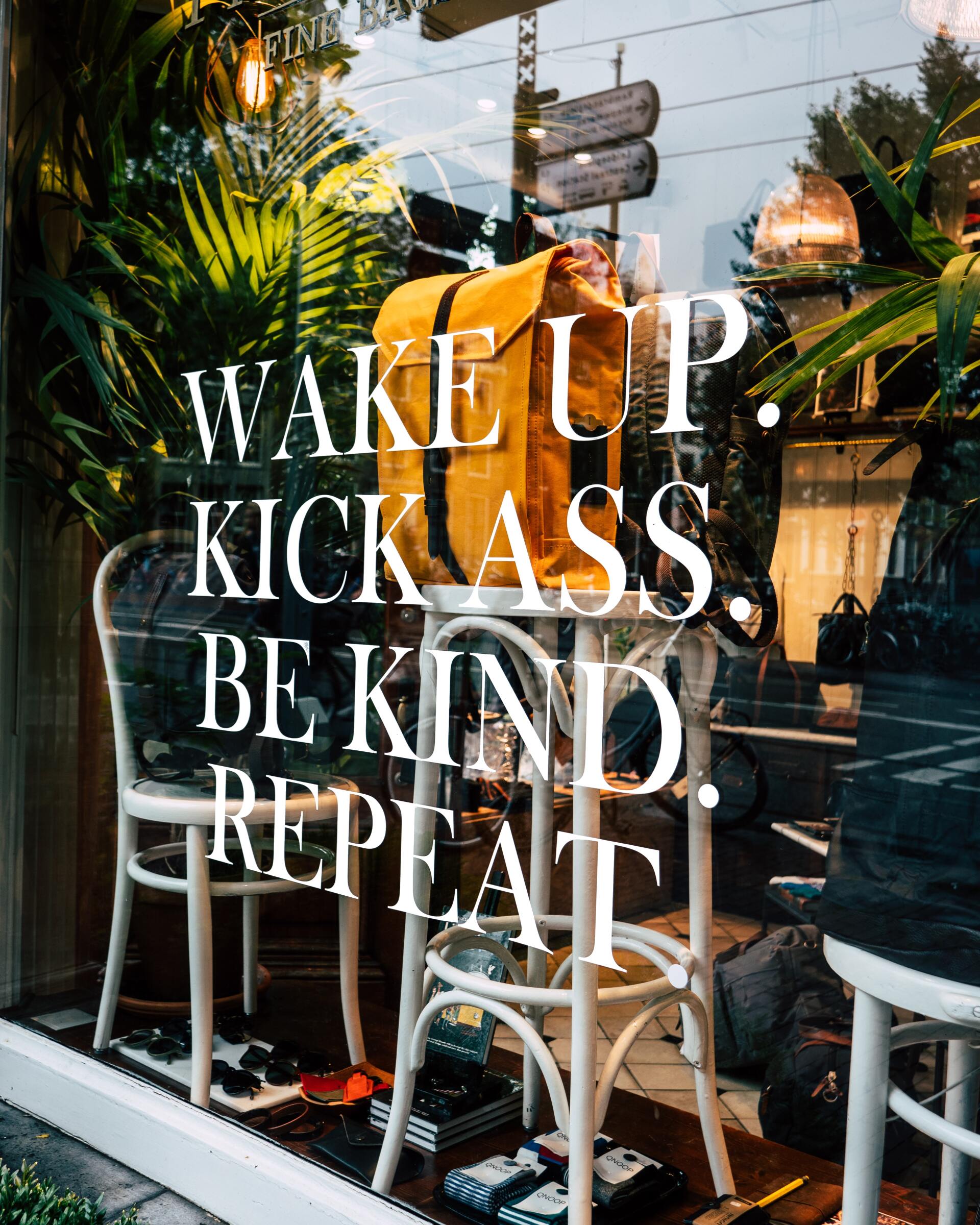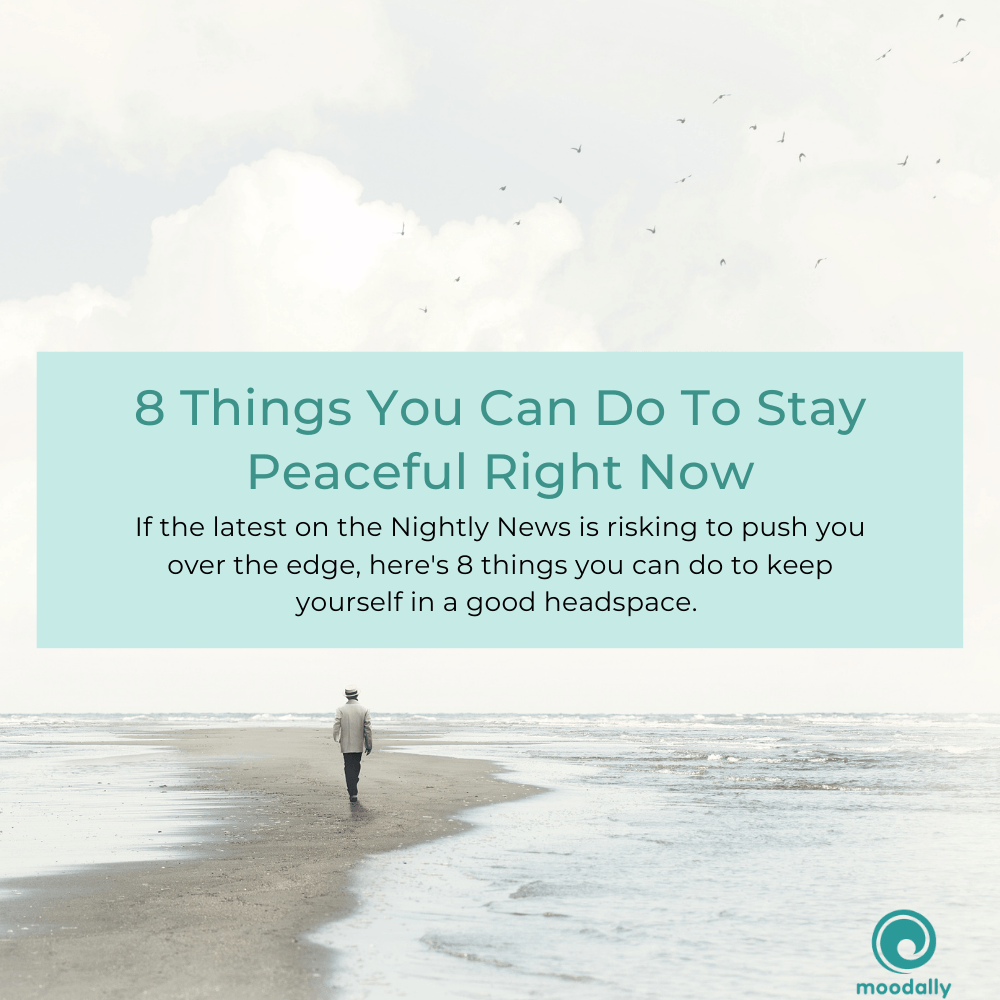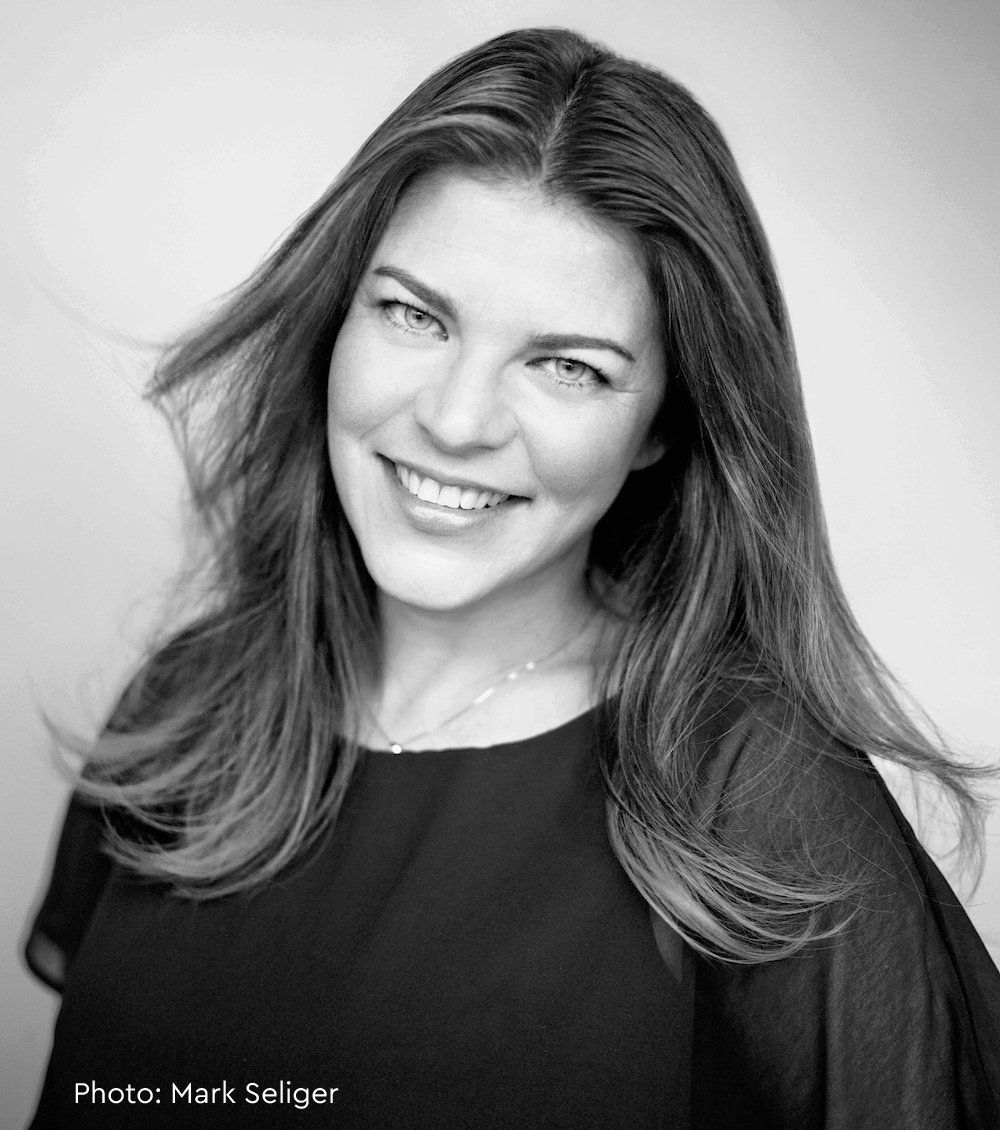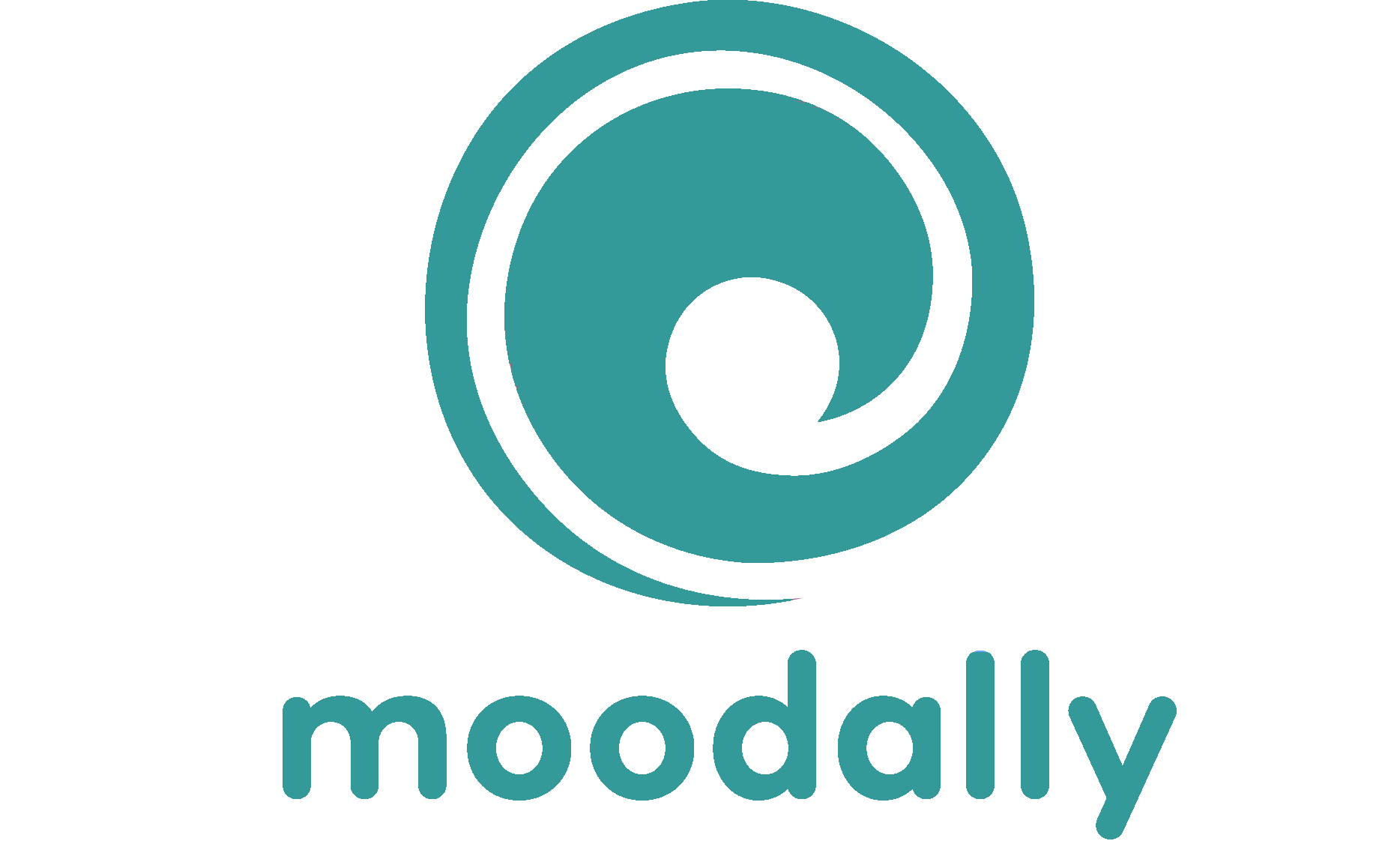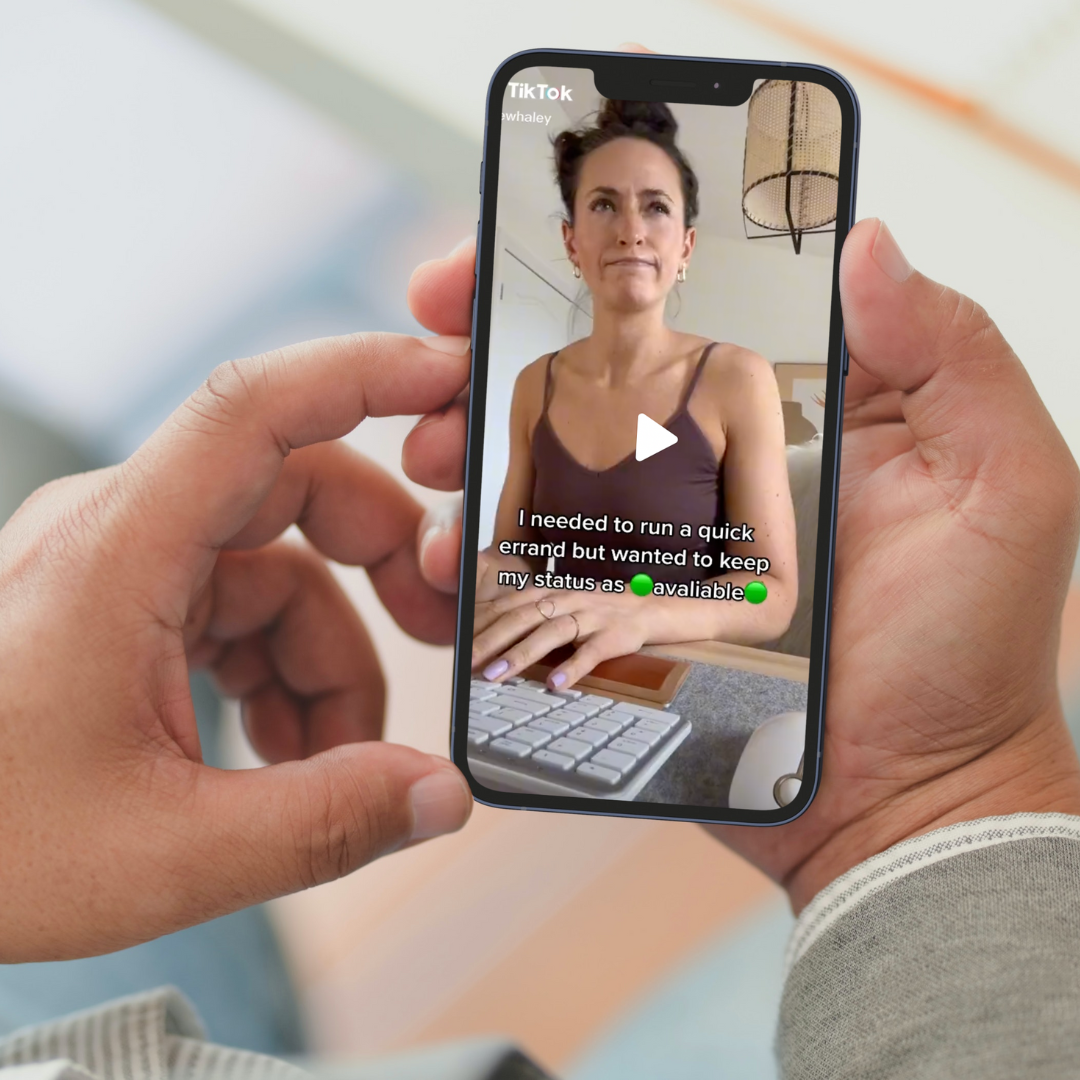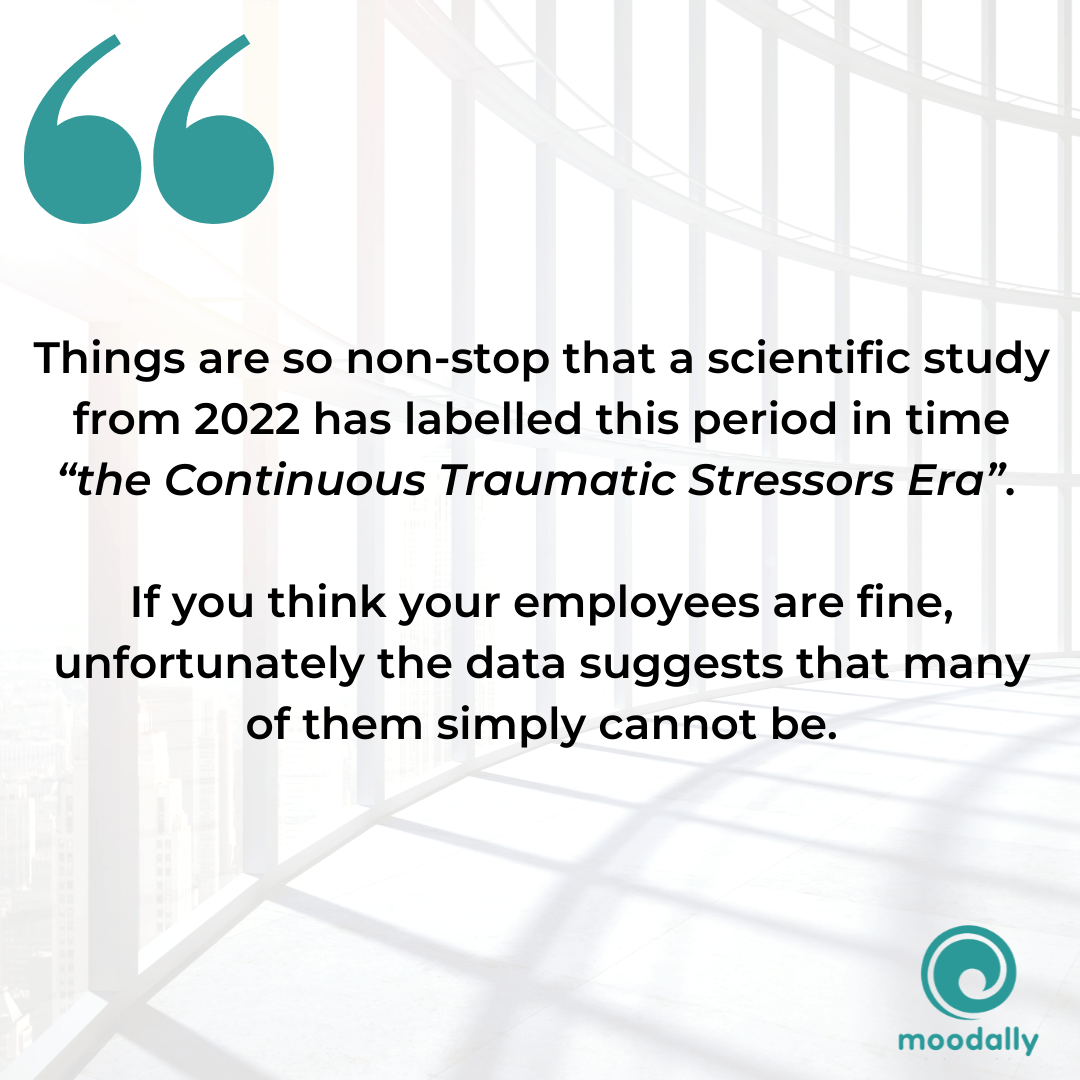How Burning Out From an Award Winning Job Improved My Life with Erika Ferszt
Moodally Matters Pocast: How Burning Out From an Award Winning Job Improved My Life with Erika Ferszt - Episode 1, Season 1
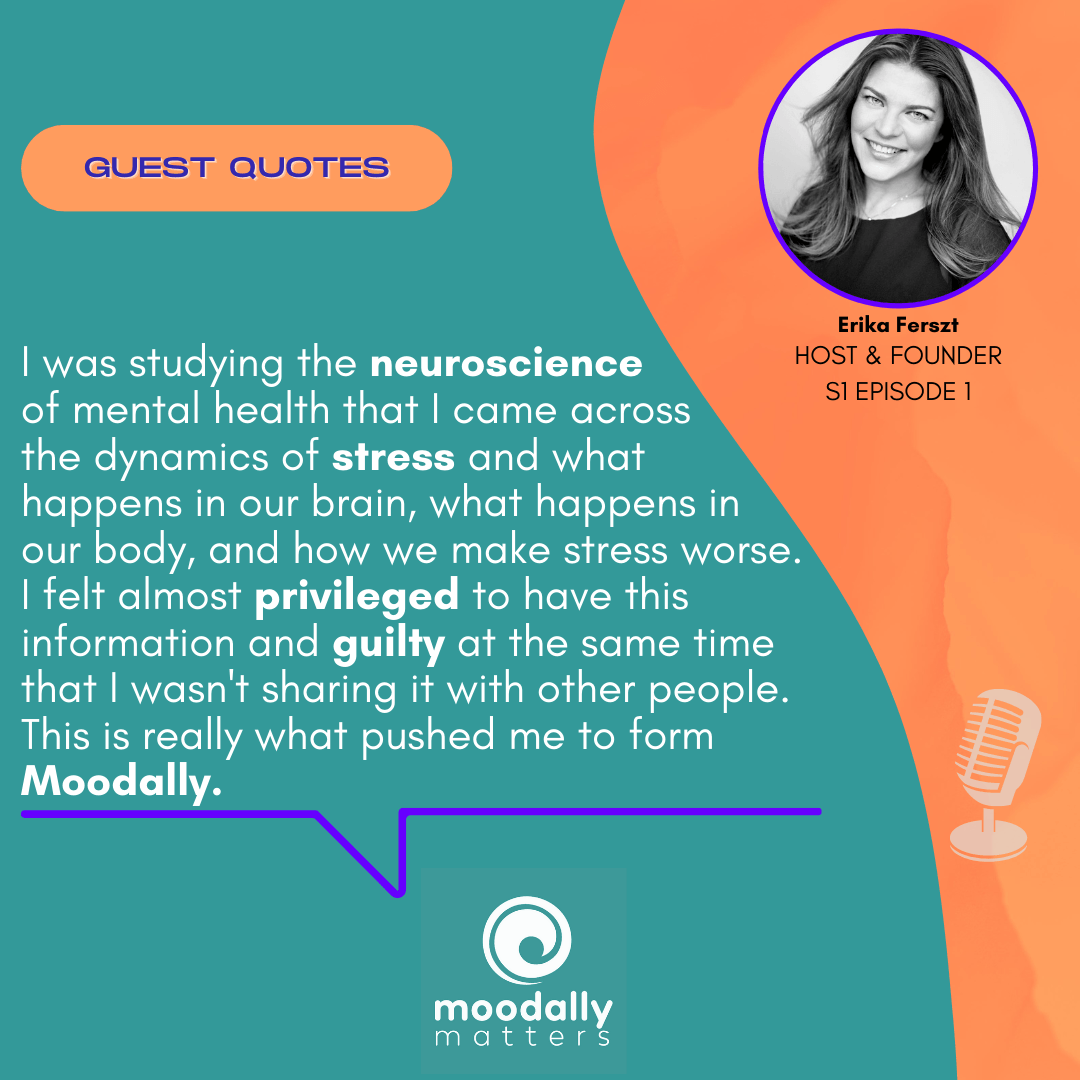
Erika Ferszt 0:00
Hello, everyone, I am Erika Ferszt, the host of Moodally Matters , and the founder of Moodally, where we help turn employees moods into a competitive advantage; improving their well being and performance at the same time. Now, this is my very first podcast episode, and I was thinking about what was the best way to launch it. And I thought that the most appropriate way was to interview myself so people could get an idea of who I am, my experience, what led me to where I am today, and what are the things that I believe in and my mission and vision.
Erika Ferszt 0:40
So I've decided to turn my own questions that I save for other guests on to myself. And the first one is always about asking someone's professional history and how they got to where they are today. And I'm actually going to go all the way back to the beginning. Because a little bit of it feeds into my experience and why I do what I do.
Erika Ferszt 1:02
I actually started working when I was 15 and a half. I grew up in New York City in the 80s. And my parents were rather unusual. My father was a copywriter for an advertising agency. He also wrote for Encyclopedia Britannica, he was a Mensa member, and was also in the Institute of Theology (ndr: was actually called General Seminary) to study to become a priest, which he ultimately abandoned. At the same time, my mother was a nightclub promoter who was working for Peter Gatien, who was the nightclub King back in the 80s. And so my household was very bizarre. I've always had sort of two different halves of life experience. My father was incredibly intellectual, my mother was incredibly social.
Erika Ferszt 1:48
And we lived in a very unique artistic neighborhood that was also incredibly dangerous at the time. And I went to school in an excellent private school on the Upper East Side. But my realities were incredibly different. I was surrounded by drug dealers at night, and fabulous apartments on Park Avenue by day. And this is also fed into sort of my interest in psychology and understanding a wide range of people's behavior. But back to the story.
Erika Ferszt 2:21
When I was 15, one of my classmates invited all of our group of friends to her house in Jamaica....the actual Jamaica, and I didn't have the money to pay for the trip. So my parents suggested that I get a job. And I did, I ended up getting a job on the weekends for this fashion company, French fashion company, called Agnes B. And the irony is, of course, that I was making enough money now to afford the trip. But I couldn't go on the trip because I had to work. But I discovered a love of working very early. And I ended up actually really succeeding at Agnes B and they made me manager or an assistant manager at a very young age. And I ended up working there halfway through college before I switched over.
Erika Ferszt 3:06
But I did kind of odd jobs throughout my life to survive. Because I moved out of my family home when I was 17 and a half, I've been living on my own since then. And so I always had a range of jobs, there wasn't anything that I was necessarily very passionate about. And I had this fantastic job working for an attorney who also owned a nightclub. During the days I would work at his law firm as his head administrator. And then in the evenings, I would help him promote parties at his nightclub. And I got to a certain point, even though I was earning a lot of money, for my age, I was 22 years old, making nearly $75,000 a year in 1994 (ndr: correction it was 1996) I knew that it was an ultimate dead end. And that if I wanted to actually set the grounds in my career, I was going to have to take a step back.
Erika Ferszt 3:59
So I was trying to figure out what it was that I was interested in. And I decided to...I have both a love for business and for the creative. I am not creative enough to be 100% creative, and I don't like money and finance enough to ever be that. So I was able to rule out a lot of businesses, but I was very attracted to advertising because of the power of communication that it had sort of a mix of both that how do you make business creative? And how do you make creative profitable? I took a job for Ammirati Puris Lintas, it was a very hot sort of advertising boutique in New York in the 90s. And I was working as a staff assistant, which is a very politically correct way to say secretary, in the new business department, which was fantastic because it was a unique opportunity. We were working with sort of the top people across the company. And so I got to learn and be mentored that first year in advertising by some of the best minds in advertising to this day.
Erika Ferszt 5:00
I had studied art history as one of my focuses in university and my college boyfriend decided to give me a present of a trip to Italy. I had never been out of the United States. And he thought this would be a great way for me to not only take my first international trip, but also get to see the works of art that I had studied while I was in uni. And so we went to Italy, and I absolutely fell in love with the country, I fell in love with the nature with the art with the buildings with the philosophy of life. And when we came back from our holiday, I had this insane idea that I wanted to move to Italy. Now, of course, I had Florence in my mind and the room with a view pictures of sort of sitting on the balcony and having lunch overlooking the Duomo (ndr: it did not turn out like this). This is what I imagined life in Italy to be. But when I came back I, I had told my my company that I was interested in moving abroad. And because my father was born in Holland, I had access to a European passport. So ultimately, we were actually able to make that happen.
Erika Ferszt 6:08
I came to Italy, I interviewed with the agency, and they gave me a job and I moved six months later (ndr: my boyfriend & I broke up after my interview in Italy). So in September of 1998, I moved to Italy, not speaking a word of Italian, I am not Italian, by by any sort of DNA or blood or relatives and just affection for the country. I moved here, I didn't know anyone I didn't speak the language. I had just a few weeks before ultimately met the man who was to be my future husband (ndr: we met through friends watching the World Cup, he was living in NY). And so I started working in this advertising agency for two years. And it was great. I mean, it was incredibly hard learning the language and trying to be useful at the same time. But then I ended up going back to New York for two years, in which time, September 11 had happened. And at this time, I was dating my Italian boyfriend (ndr: the one I met before moving there), and we were talking about the future and what life was going to be. And so we ultimately decided to move back to Milan, which I did in 2002.
Erika Ferszt 7:06
And I worked for another ad agency then for another couple years. And then I got the opportunity to move client side as the brand director for a white goods company known here as Ariston, which was then merged with Hotpoint and was now purchased by Whirlpool. And this was my first foray into that side. I worked there for a year, my boss left he went to Luxottica, which is the company that owns Ray Ban, Persol, Vogue (Eyewear), basically every pair of sunglasses that you would ever want to buy somehow goes through Luxottica at one point. I was hired to run the media advertising and digital for all of their house brands. And that was a very challenging job, which ended up being just 10 years of incredible amazingness. I had amazing people around me in my team, I had fantastic bosses, we were working on amazing brands, and culture was shifting because the social media had just started, the Internet was really blowing up. And so we were really allowed to be to fail forward. And so it was a very rich, very creative time of experimentation. And you know, learning from mistakes. And I had a great team of people that were based here in Italy, some in the United States and some in China. And I learned so much about being a manager because it was really my first job of managing people. And so from going from, you know, being kind of a one man band to having 30 people to manage and learning how to be a good manager on the job was was a challenge for both me and obviously for the people who worked with me, but very rewarding experience towards the end.
Erika Ferszt 8:54
Now where the story turns towards today is that I woke up one morning and I couldn't see out of my right eye and I thought it was nothing except it kept getting worse. So I ended up going to the hospital. They checked me into the hospital for 10 days where they ran extensive neural testing. They thought it was MS. But there were no other correlate symptoms. And it was the one time I was happy to hear this sentence. They told me that I was too old probably to have the early symptoms of MS. So ultimately that they concluded it was because of the lifestyle that I'd been living and the stress levels that I was dealing with and kind of my hustle nature. I would fly to LA for one day I would do China, Australia and then back in three days sleeping on planes changing in bathrooms. I have to say one of my lowest points was when I was changing clothes in the Pudong airport in Shanghai before going to a meeting. So obviously I took some time off after that was over to kind of heal and collect myself.
Erika Ferszt 10:02
Some important events happened to people around me, that made an enormous impact on me and my values and what it was that I wanted in life. And mixed with my own experience of burnout, I decided to go back to school, and I ended up studying the neuroscience and psychology of mental health. And I finished the postgraduate program there. And then I went on to get a Master's degree in Organizational Psychology because I really felt drawn to bringing the information that I had learned during my postgraduate course, to the tribe that I know best, which is really the professional, the professional universe.
Erika Ferszt 10:47
And it was during the time that I was studying the neuroscience of mental health that I came across the dynamics of stress and what happens in our brain, what happens in our body, what happens to us that makes us feel stress or, or that how the behaviors that we engage in that actually make stress worse for us. And I felt almost privileged to have this information and guilty at the same time that I wasn't sharing it with other people.
Erika Ferszt 11:17
And so this is really what pushed me to form Moodally. And is what drives me every day is that the information that I know about mood can make your life so much easier and so much better. So it's really my I wake up every day with who else can I reach? And how can I get them to understand that actually, stress is far more complicated and dangerous, then we might know, because it's so pervasive and easy to trigger. And yet solving it is so much easier than we might think it just requires consistency in behavior, right. But first, you have to know how this system works in order to be able to shut it off. And so that's really what drives me every day to to do more and to get out of bed is to really try and share this information with all of you to try and help people, you know, avoid the situation that I ended up in. But also to really just be able to improve their own sense of well being, and how they show up at work everyday because our self esteem and our sense of well being is really connected to our satisfaction around what we can achieve. And of course, what we can achieve depends on 100% depends on the mood we're in. So that is a very long winded beginning to who I am and what I do.
Erika Ferszt 12:47
Now, some of the other questions that I ask people is, what is well being at work mean to them, and to me, well being is very much linked to creation and creativity and satisfaction with what you've put out in the world. I feel best when I'm able to work hard at something we do love challenges. This is even in the whole flow theory that we need a little bit of challenge. And actually, as long as we're not being challenged were 100% in our comfort zone, which means we're not evolving, we're not learning anything new. In order to learn, evolve, move forward, both as individuals and as professionals, we have to challenge ourselves a little bit. So I love being challenged and think, can I do this and thinking through problems, and then seeing a solution, and then seeing how that solution then ends up in the world and is it received properly. I also feel my also wellbeing is also tied to seeing what I produce to be able to make an impact in the world. Now, obviously, not everything can be successful. But I firmly believe that so many times, there is stuff that affects people positively that you're not aware of. I've had conversations with people where they remember something I said five years ago that touched them in a positive way that I just had absolutely no idea. So I try and remember every day that we don't know the impact, the positive impact or negative impact that we have on the people around us. And so to really try and kind of always be an inspiration are a positive force or, you know, a good energy force towards the people around you.
Erika Ferszt 14:36
So, so my idea of well being is very much connected to the ability to be creative and to positively impact the ecosystem around you. One of the things that I learned though, the hard way is that well being it begins with the body and it begins with the mood because it doesn't matter how many productivity classes that you've taken, it doesn't matter if you've hacked your daily schedule to be the absolute perfection of logistic, you know, excellence, if you're not in the right mood, none of that matters, you will not show up properly for work in your own mind you and when we're not aware of it, but our abilities to function cognitively, are impaired when we're in a bad mood. And so even if we're not aware of it, we're not showing up as our best selves.
Erika Ferszt 15:34
And so the body, the way our body and brain communicate to us are through feelings, right? So that feeling in my stomach is a communication from my body, to me on how it's feeling, the exhaustion is a communication, the weird flickering in your eye, you know, is a communication. And so the one thing that I learned, again, the hard way, was that it's so fundamental to learn to tune into your own body and your own emotional and mood state in order to understand how it is that you're feeling. Because if things are off, if your feelings are off, if you are tense, if you are anxious, if you are angry, that affects you, your ability to do what it is that you want to do, and also affects everyone else, because there's a thing called emotional contagion. And this is scientifically demonstrated that your mood rubs off on other people and actually has a transmission rate that's higher than most physiological viruses.
Erika Ferszt 16:39
So the the question of mood is really important, because it is so contagious. And I think we can see this now in social media, you know, in the echo chambers. There was even that research that Facebook did without consent, when they tracked if they show people bad news, will they be in a worse mood? And the answer was yes. And if you show people happy news, or happy conversations, allow them to participate in happier conversations, will they be happier? And the answer was yes. And there are studies that show that within a work organization, our moods impact, not only how productive we are as a team, or as employees, but also the group dynamics, things can start to shift. And there can start to be problems in communications that simply come from somebody bad mood sticking to someone else. I remember I had a colleague that when they entered into the room, it was like, a dark cloud had followed them in and everyone tensed up, everyone got nervous, because you never knew what was gonna come out of this person's mouth, how they were going to behave. And they were usually not very nice, but you could see the entire dynamics of an entire room change just because of this one person's mood. And then what happens is, when they stick it to us, then we what we usually do is we'll end up calling a family member or friend, you know, when we're a little bit snippety, and we pass it on to them.
Erika Ferszt 18:03
So ultimately, actually, in order to avoid this emotional contagion, the best thing to learn how to do is what we call emotional self regulation, which is one of the skills that I teach learning how to recognize the mood you're in and learning the techniques on how to get out of it so that you no longer feel that way. And you don't pass it along to someone else.
Erika Ferszt 18:25
Okay, so talking about some of my favorite well being interventions, which is another question I like to ask my guests, I would start with food, we know this, and yet we don't know this, but what we put in our bodies. 100% determines how we feel I have been struggling because of my age because of my history with burnout, to find a diet that works for me. And in the past few years, I've noticed that I am far more sensitive to certain foods than I ever was, and that they have a dramatic impact on my physical well being which then naturally impacts my psychological well being. So really being very attentive and conscious of how the food you eat affects you is what I would say probably very boring advice, but is my first advice for wellness interventions. Watch what you eat, pay attention to how you feel after eating certain foods. I recently just had to cut out all wheat and all aged cheeses and dairy and my energy levels, my memory, my cognitive focus, my sleep all improved within a matter of a week. And I've been suffering from these symptoms for well over a year. You know, you can just sometimes making those very simple small changes in your diet can actually have an enormous effect on you.
Erika Ferszt 19:56
The other wellness intervention obviously that I said... from the moment that we're starting to pay attention to our body, we're also paying attention to how we feel. So I will now notice more often, sometimes I would get upset at work and not even be aware of it right? My neck is clenched, My fists are clenched, my jaw is tighter, my mind is ruminating over the things that I'm upset about. But I wasn't aware of it, because I didn't know I needed to be. And now I am very mindful of the thoughts that are going through my mind, your self talk is of fundamental importance to your well being the stories that you're telling yourself, about yourself, about your day, about your life, about your possibilities, they are determinant in how you experience the world around you. So there is there's some interesting data that talks about expectations. And the idea is we don't want to set our expectations too high. Because this creates the possibility for disappointment, which then actually becomes a problem. But at the same time, we also don't want to set our expectations too low. Because then we get more and more depressed, the less we expect from ourselves, the less we believe we're able to achieve. However, the higher our expectations, the more we set ourself up for insatisfaction with our life around us. So the idea is to have sort of a goal and an intention, but then be open to what that outcome could look like. But what determines those, as I said, are the thoughts that are going through your head.
Erika Ferszt 21:34
And one of the things that I like to do is an interview, right? You'll read a lot about cognitive reframing on the internet. And it'll say, you know, if you said this, then say that. Now, I personally don't believe that the majority of those techniques works, you can't just swap out one thought for another one. It's like, if you're feeling anxious about something to say, this is a good thing. Right? Is, is basically just trying to gaslight, your own brain, you actually have to dig into what it is, what's driving that thought. So and this comes from cognitive behavioral therapy, you want to do an interview to yourself, you know, if your brain is anxious about something, ask it, why are you anxious? What are you afraid of? What do you think is going to happen? You know, what is driving this? And you will find that when you interview your own mind, you will get responses back, and they will be useful responses. And so what you want to do is kind of just drill down to what it is that's actually making you feel the way that you feel and then offer another solution. Well, could it also be? Well, what if we tried this, you know, as if you were almost holding a negotiation, it's not enough to just tell your brain if it's anxious about something like, Don't worry, this is a good opportunity, because it doesn't believe it, you haven't provided any new information for it to change its mind on what's making it anxious. And to sort of squash it with another imperative isn't going to help. You actually have open it up and and convince it, like a Socratic method of debate with your own mind. But by doing this, we then we unscrew it, right? So it's not we're no longer squashing it, we've actually solved it. So I very much espouse this idea.
Erika Ferszt 23:22
So we've had the diet, the watch your thoughts, and then do this kind of Socratic questioning of your own thoughts that are going through your head, that's really the best way to undo and diminish certain beliefs that that you hold that are maybe causing you to be in specific moods. And then content, obviously, I believe in this very much I made an app about it. Creative content is one of the fastest ways to help you change your mood, and, and feel better in real time. Not all content is created equally. There are scientific parameters on what works, what kind of music, what kind of imagery, and certain words, but I do believe in creating positive playlists, uplifting playlists, playlists that will give you more confidence, videos that make you laugh. Laughter is a fantastic way to increase your well being almost immediately and as music. So those are the interventions that I espouse. I use for myself and I would suggest for there's a whole bunch but I don't want to keep you here for two hours.
Erika Ferszt 24:32
Okay, so I'm going to end this episode with the usual question that I asked my guests which is what three pieces of advice would you give to a young person entering the workforce and I'm gonna specify it a little bit to be more what are three pieces of mood advice I would give to people and as I said, the first is really to learn to pay attention to your own emotional state. And this doesn't only mean, in the office, this means outside of the office as well. In order to develop an emotional or a mood literacy, we have to understand what the specific physiological clues our body is sending us in order to be able to read it, right. So increased heart rate, for example, can show up when you're anxious, but also when you're excited and happy. So being able to identify the difference between those two, and they are different, you know. Your stomach will close if you're anxious, whereas you'll your shoulders will expand if you're excited. So knowing how to read your own set of individual physiological clues and cues from your body to understand how you're feeling. Because sometimes we can confuse fear and anger, we can confuse excited and anxiety, and we can also confuse sadness and boredom or sadness and disappointment. So it's important, I think, to work on the skill of emotional literacy, because this will help you to face whatever situation you are having to deal with, with authenticity, right? If you know you're afraid in the situation, then you can respond accordingly as opposed to just attacking, right. It's like, okay, well, this is obviously making me scared. So there's something I need to be aware of here. And why am I afraid? So as opposed to just reacting, learning how to respond appropriately based on an accurate emotional reading?
Erika Ferszt 26:41
The other thing, I think, is to listen and ask questions and be open. One of the things that disturbs me most about what's happening now, and particularly the echo chambers that have developed is that there is absolutely.... we're losing the ability to dialogue, right? To have a conversation with somebody who thinks differently than us and and have it be productive. And I see this on both sides. You know, I'm not pinning it on anyone here, there's been a radicalization of ideas on both sides of the fence. And at that point, there's no common ground. And that's not sustainable. So I would encourage people to find the old art of listening and trying to understand. You know, the problem is that frequently our brain looks for confirmation of what we already accepted as accurate. And so being able to be like, this is what I believe, but I'm interested in hearing why you believe that, to see what drove those people to that opinion, I think is a useful exercise for anyone in their personal and professional life.
Erika Ferszt 27:51
My third piece of advice is to choose your team wisely. Don't pick the company pick, the team. A company is made up of many different cultures. And sometimes there's the culture that they advertise to the public, which once we get inside the four walls, it's not always the truth. Maybe there are some elements of it that are true, but you know, if you work in the finance team, you're going to have a different culture than if you work in the social media team. And so you want to find a team of people who you can collaborate with who you resonate with, who you can learn from, who you will feel psychologically safe with. These are the elements that will allow you to produce your best work. So I think it's really important to meet and talk to the people that you are going to be spending more than 50% of your waking hours with because they are influencing your well being your mental and emotional state, whether you're aware of it or not. And if we think about it, you know, you would never actively walk into a situation where there were 10 mean people waiting for you every day. But we don't usually think about our team as a decision factor in taking a job and having having participated in this situation where our team was like a family, and not in the sense that you have to work 24 hours because you're family, it was lacking some of the obligations that I would say are associated with family. But we genuinely cared for each other. We were all completely different. But we complemented each other and what we were able to achieve as a group and as individuals professionally and personally during that time was unprecedented. And the number of awards that we won in that time, I think was testimony to the fact that when you get the right people all working together, feeling good, being creative, being productive, that the sky's the limit.
Erika Ferszt 30:06
And I am going to end this first episode with that. I hope I've given you a better insight into who I am as a person and a professional. My door is always open to answer questions if you have anything that you would like to know about me or about my work specifically, please drop me a line at Erika@moodally.com, otherwise this will be the last time I will be talking to you for so long. And our next episode will be coming up in just two short weeks. And so I hope you'll stay tuned to hear some of my amazing guests. I have a fabulous lineup for you of some really incredible professionals from all different walks of life and experiences who have really given me some fantastic interviews and I'm so excited to share them with you. In the meantime, hope you have a wonderful day and please be well.
